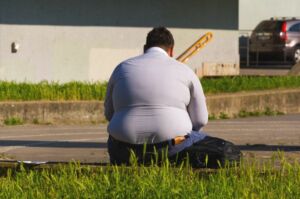News
Are Danish insurance companies investing too much credence in BMI scores?
This article is more than 2 years old.
According to the index, a loss of working ability applicant interviewed by DR is classified as obese, but she “cycles every day, practises yoga, eats healthily and has virtually no sick days”

The BMI fails to take into account our body shapes, claim critics (photo: libreshot.com)
Insurance companies are increasingly turning down applicants solely based on their BMI – particularly those seeking life insurance or insurance against loss of working ability.
A DR report cites the example of Danica Pension, which in September turned down an application for the latter, purely based on a BMI score.
Mona Ebdrup, 32, has a BMI of 37.5, but she “cycles every day, practises yoga, eats healthily and has virtually no sick days”, according to DR, which published several photos and interviews with the applicant.
So far, she has been turned down by three companies.
Insurer: Sorry, but BMI in late 30s is too high
A BMI score of over 25 classifies somebody as overweight, and over 30 as obese. But Danica Pension reasons that in Ebdrup’s case, it was a matter of her BMI being over 35.
“In general, for customers who have an elevated BMI, it is not likely that we can offer them insurance because their BMI is simply too high. And you are in the high limit when you have a BMI in the late 30s,” reasoned its director of claims, Thomas Skrostrup, to DR.
“With increased weight, the risk of developing health problems, including cardiovascular disease, increases. And thus the insurance company’s risk also increases. Being overweight comes with a big risk. So if you are overweight, and you are severely overweight, then there is a probability that we cannot offer insurance.”
Applicant: Unfair on me and my family
However, Ebdrup feels that Danica Pension should have investigated further, instead of dismissing the application due to her high BMI.
“I think it’s unfair that I can’t be insured on equal terms with everyone else. My family would be in a really tough situation if something were to happen to me,” she said.
Certainly, BMI has its critics – mostly because it does not really take muscle into consideration, or our natural body shape, and how this might impact weight.
There are many who argue that an assessment of our health should be more concerned with visceral fat (deep-lying) than subcutaneous fat (mostly around the surface). Increasingly they are advocating for the use of ‘A Body Shape Index’ (ABSI) as a more reliable indicator.










































